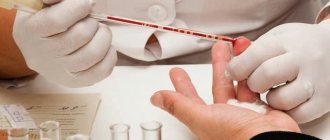This disorder was talked about loudly several years ago, when Catherine Zeta Jones was diagnosed with bipolar disorder on living with bipolar disorder in Catherine Zeta-Jones.
Millions of people suffer from this, and I am only one of them. I say this loudly so that people know that there is no shame in seeking professional help in such a situation.
Catherine Zeta-Jones, actress
Largely thanks to the courage of the black-haired Hollywood diva, other celebrities began to admit that they were experiencing this psychosis: Mariah Carey Mariah Carey: My Battle with Bipolar Disorder, Mel Gibson, Ted Turner... Doctors suggest Celebrities With Bipolar Disorder bipolar disorder in those who have already died famous people: Kurt Cobain, Jimi Hendrix, Ernest Hemingway, Vivien Leigh, Marilyn Monroe...
The listing of names familiar to everyone is only necessary to show that psychosis is very close to you. And perhaps even you.
What symptoms are used to diagnose bipolar disorder? How does the disease manifest itself?
Bipolar disorder is characterized by severe mood swings. The mood for several months, weeks or (less often) for several hours “goes to extremes” - it becomes too cheerful and too bad.
The mood for several months, weeks or (less often) for several hours “goes to extremes” - it becomes too cheerful and too bad.
Mania or hypomania is an elevated mood and violent physical and mental activity. Mental activity becomes heterogeneous - attention captures every detail, but it is difficult to concentrate on one thing for a long time. Thoughts are constantly “jumping”, one idea is quickly replaced by another. All emotions intensify: joy - to euphoria, irritation and resentment - to aggression, suspicion - to paranoia. Physical activity also increases: you almost don’t want to sleep (three hours of sleep seems enough), sexual desire increases. Behavior becomes impulsive, reckless, sometimes even adventurous and eccentric. A person can become obsessed with an idea. During a manic episode, delusions and hallucinations may occur.
Hypomania is liked by everyone who has experienced it at least once. With hypomania, unlike mania, delusions or hallucinations occur less frequently, criticality remains, and aggression is lower. However, hypomania is not a normal mental state; the brain works in an enhanced mode. Reserve resources are used to speed up mental processes, and when they run out, complete exhaustion occurs. With hypomania, the psyche seems to be running a sprint. Imagine if you only run all your life - your body will quickly deplete and wear out. It’s the same with the psyche. Hypomania can develop into more unpleasant states - mania or depression.
Reserve resources are used to speed up mental processes, and when they run out, complete exhaustion occurs. With hypomania, the psyche seems to be running a sprint.
Another sign of bipolar disorder will be not just a bad mood, but depression, from mild short-term to severe long-term. Here everything is the other way around. Activity drops: when you need to do something, there is neither strength nor desire. Mental activity is even more difficult: in addition to the lack of desire and strength, it is difficult to concentrate, remember, analyze, and make a decision. The experience of emotions becomes dull, with the exception of worsening resentment, guilt, hopelessness, confusion, anxiety or indifference. Appetite changes, insomnia or excessive sleepiness appears. Even if you are a very cheerful person, severe depression can cause suicidal thoughts. With severe depression, delusions and hallucinations may occur.
These phases can replace each other and can appear simultaneously. For a long time, only one pole can manifest itself - then even doctors, instead of correctly diagnosing “BAD,” may first diagnose “depression.” The breaks between episodes (intermissions) are different for everyone - it can be a month, a year, three years, five years.
In a healthy person, changes in the activity of mental processes are not so contrasting and are more amenable to regulation. They do not lead to a deterioration in everyday functioning - a person can successfully cope with the professional and academic responsibilities assigned to him, and establish and maintain relationships with others.
Variations of the manic stage
In addition to mania itself, there are variants of it with a shift in the severity of symptoms in one direction or another.
Less pronounced mania is called hypomania. There is an elevated mood and increased activity. A person only needs a couple of hours of sleep a day to regain strength. In another case, patients can stay awake for whole days.
Hypomanic periods are very effective for bipolar people. Behavior is closer to adequate. Energy is in full swing, which affects productivity. Hypomania adds creativity and self-confidence. The person is in a rather pleasant state, in mild euphoria, with a feeling of well-being. Often the patient does not want to leave this state.
In its strict formulation, hypomania sounds like a mild form of mania, accompanied by moderate agitation without disorganization of social activity, behavior, and without psychotic symptoms.
Woman, 40 years old. For two weeks in a row he wakes up early, at 4 am. Defines sleep as superficial. The patient is constantly accompanied by the desire to do something: she is busy with housework, caring for children. In between, he helps elderly neighbors. Doesn't feel tired. Because I was so busy, I forgot to eat. Sleep has decreased. In recent days, I ran out into the street, jumped, and laughed. I hugged my fellow villagers. She alarmed her family with her behavior. She was hospitalized in the hospital.
Although the patient feels quite comfortable in the hypomanic state, it requires immediate treatment. Otherwise, hypomania develops into mania.
An exaggerated degree of mania turns into manic psychosis. All symptoms of this stage dramatically exaggerate the manifestations. Patients become noticeably more active: they rush about, scream, become indignant, and sing. Excitement reaches peak tension. Emotional instability is expressed. Irritation increases. A special feature is the presence of psychotic symptoms: delusions, hallucinations, auditory or visual. Delusions of grandeur develop: the patient proclaims himself Jesus Christ, the president.
Vacationing in a small, dilapidated house on the sea coast, Adelaide once saw this home as a chic mansion in white tones. Living here with a man whom she met 10 days ago, the woman claimed that he was her husband. Subsequently, she assured the orderlies of this. The woman ran to the sea to ask God for forgiveness for the devil, because she felt sorry for him. At night, she took a child’s toy sword and stood at the door of the house, protecting her fictional husband from imaginary dangers. Finding herself in a hospital room, the woman insisted that she had gone to heaven, only it seemed boring to Adelaide, devoid of colors.
Signs of manic psychosis are easily confused with schizophrenia.
What are the causes of bipolar mental disorder?
Unfortunately, science cannot answer why bipolar disorder occurs. What is known is that many factors interact with each other.
Now the occurrence and development of the disease is considered through the biopsychosocial model (BPSM). According to this model, the development of the disease is influenced by three factors - biological, psychological and social.
The biological factor includes genetics, physiological and biochemical characteristics of the body.
Psychological factors in the development of bipolar disorder include the number and intensity of stressful experiences, coping strategies, character traits, emotional sphere, and thinking.
Social factors - cultural and political situation, economic situation, microsocial environment (family, friends, professional environment, acquaintances).
The emergence and development of bipolar disorder is not caused by one of these factors, but is a consequence of their interaction.
Unfortunately, science cannot answer why bipolar disorder occurs. What is known is that many factors interact with each other.
Questions like “Why me?”, “What causes BAD?”, which cannot be answered, are called rumination. The thought chains that arise when thinking about such questions do not lead to an answer, but lead to a decrease in mood, increased anxiety and a feeling of hopelessness. Psychotherapeutic techniques and communication with loved ones will help you switch or abstract from such thoughts.
Forecast
In the interictal period, in patients suffering from bipolar disorder, mental functions are almost completely restored. Despite this, the prognosis is unfavorable. Repeated attacks of bipolar disorder occur in 90% of patients, and over time, 30–50% of them permanently lose their ability to work and become disabled. In approximately every third patient, bipolar disorder occurs continuously, with minimal duration of light intervals or even their complete absence.
Bipolar disorder is often combined with other mental disorders, drug addiction, and alcoholism. In this case, the course of the disease and the prognosis become more severe.
How is bipolar personality disorder treated? Will I be in a mental hospital?
The need for hospitalization may not arise if you take a responsible approach to treatment. If left untreated, episodes of mania and severe depression are likely to result in hospitalization. However, hospitalization does not put an end to a person’s life, but helps to get out of an episode of depression or mania and return to normal life.
As mentioned earlier, the course of bipolar disorder is influenced by three factors - biological, psychological and social. To minimize the impact of bipolar disorder on your life, you need to take control of all three factors. In this case, you will not have to go to the hospital and outpatient treatment will be sufficient.
The biological factor will be taken over by medications and a healthy lifestyle. A psychiatrist will prescribe the necessary medications for you. The medications must be taken regularly; you should not pause without consulting your doctor. If you experience unpleasant side effects, discuss this with your doctor and decide together whether to wait, change the dosage, or switch to another drug.
A healthy lifestyle helps maintain the normal state of all body systems, including the nervous system. Taking medications will not have a good effect if drugs or alcohol are simultaneously affecting the brain. The following will help you maintain your nervous system, and therefore all mental activity, in good condition: stable good sleep (at least seven hours), absence of bad habits (alcohol, drugs, smoking), regular physical activity, proper rest, adherence to a daily routine, proper nutrition.
The medications must be taken regularly; you should not pause without consulting your doctor. If you experience unpleasant side effects, discuss this with your doctor and decide together whether to wait, change the dosage, or switch to another drug.
Psychotherapy will help regulate and take control of the psychological factor. The recommended type of psychotherapy for bipolar disorder is cognitive behavioral therapy (CBT). Psychotherapy will not cure the disease, but will allow you to develop problem-solving skills, effective communication, and coping strategies. New skills or habits will help you cope with stress and anxiety, and resolve intrapersonal conflicts. At the end of psychotherapy, you will be able to independently apply these skills in life. Depressive episodes will be easier to experience, and their consequences will no longer be so severe. Psychotherapy promotes the development and harmonization of personality, which prevents the occurrence of certain stressful situations (conflicts, destructive relationships).
The social factor in the development of bipolar disorder is relationships with loved ones, work or study, social activity. The support of relatives and friends has a positive effect on the psychological state and helps to cope with episodes more easily. Stable work is also important, not only to ensure economic stability, but also to maintain a daily routine, expand your social circle, and feel important and needed. Spending time with friends and comrades has a positive effect, brings positive emotions, and distracts from sad thoughts during a depressive episode.
I would like to summarize the above about the treatment of bipolar disorder:
Diet
Diet for the nervous system
- Efficacy: therapeutic effect after 2 months
- Timing: constantly
- Cost of food: 1700-1800 rubles per week
Diet for depression
- Efficacy: therapeutic effect after 1-3 months
- Dates: no data
- Cost of products: 1700-1800 rubles. in Week
People suffering from this disorder need to adjust their diet so that the foods they consume are as healthy as possible. There are several important recommendations to follow:
- Consume foods containing omega-3 fatty acids, which help improve a person's depression. It is recommended to include fatty fish, vegetable oils, flax seeds, and walnuts in the diet. Fish oil is also useful, but you need to consume it regularly.
- The diet should contain complex carbohydrates - products made from whole grain flour, etc. It is better to keep sweets, confectionery, sugar, baked goods, and white rice to a minimum.
- It is important to eat plenty of foods high in magnesium. These are sunflower and pumpkin seeds, beans, spinach, cashews.
- It is very important to consume as many fresh fruits and vegetables as possible. It is especially important to introduce into the diet those that contain a lot of vitamin C (cabbage, peppers, broccoli, spinach, citrus fruits), as well as vitamin B9 (beans, asparagus, mango).
- Caffeine and alcohol should be completely avoided, as their consumption leads to increased stress levels. It is better to prefer herbal tea, fruit drinks, compote.
Reminder for the treatment of bipolar affective disorder (BD)
Control of biological factors:
- See a psychiatrist (at least once every three to four months);
- Take medications prescribed by a psychiatrist;
- Lead a healthy lifestyle;
- Set a daily routine.
Control of psychological factors:
- Accept yourself with bipolar mental disorder;
- Take a course of psychotherapy;
- Apply independently acquired skills to prevent and resolve stressful situations;
- If possible, minimize the number of stressful situations.
Control of social factors:
- Help and support of family members;
- Stable and feasible work;
- Communication, spending time with friends and acquaintances;
- Social activity, expanding the circle of acquaintances.
This memo clearly shows that you yourself can do a lot to improve your condition. Almost everything depends on you.
Remember: when protective factors outweigh risk factors, this is a good tool for reducing the frequency and intensity of episodes.
Symptoms of BPD
Symptoms of BPD include:
- uncertainty;
- frequently changing interests and values;
- the tendency to view things as good or bad;
- rapid change of opinion about others, for example, one day a person perceives someone as a friend, and the next day as an enemy;
- unstable, tense relationships with family and friends, when love alternates with hatred;
- incorrect, distorted self-image;
- self-harming behavior;
- the person has difficulty trusting people, sometimes due to an irrational fear of their intentions;
- feelings of dissociation, such as feelings of unreality, feeling disconnected from one's body, and seeing oneself outside the body;
- recurrent thoughts of suicide;
- impulsive or reckless behavior such as drug abuse, reckless driving, and recreational activities;
- intense episodes of depression, anger, and anxiety;
- chronic feeling of emptiness;
- fear of loneliness.
Not all people with BPD have these symptoms. Some people may only have minor symptoms, while others experience severe and frequent symptoms. Stressful or emotional events can trigger symptoms of BPD.
How will bipolar disorder affect my life?
If a patient with bipolar affective disorder takes pharmacotherapy and follows the rules for preventing episodes, the number and intensity of episodes is reduced to a minimum, and in intermissions there are no symptoms at all. Under these conditions, bipolar disorder does not have a significant impact on life.
Bipolar disorder, like any chronic disease, makes changes to your routine: systematic visits to the doctor, taking medications, and preventive measures.
If bipolar disorder is left untreated, episodes will significantly impact work and personal life.
Bipolar disorder, like any chronic disease, makes changes to the regime: systematic visits to the doctor, taking medications, preventive measures.
During the hypomanic and manic phases, mental and physical activity increases, but becomes impulsive and chaotic. The work will be easy, but it will not bring results. You will be able to do many things at the same time, but none will be completed. Hostility and aggression arise towards close people, which gives rise to conflicts. Without malicious intent, you can offend loved ones and not even notice it, quickly switching to something else. A manic episode may be accompanied by delusions and hallucinations, increasing the likelihood of hospitalization.
During a depressive episode, there is neither the desire nor the strength to do anything, so work and study will be difficult. Severe depression forces you to take a leave of absence from your studies or leave from work. In relation to close people, indifference, touchiness and isolation appear.
In addition to what has already been said, such “swings” tire not only you, but also the people around you. For the employer, this is an unstable employee who cannot be relied upon. For loved ones (especially if they do not know about the diagnosis of bipolar disorder), unpredictability of mood causes emotional stress, which leads to misunderstandings and conflicts.
Manic stage
The main symptom of mania is increased arousal, accompanied by an excess of energy with restlessness and hyperactivity. It is complemented by irritability.
During this period, a person’s mood reaches the stage of euphoria. Thinking becomes disordered. The patient has an endless stream of ideas, a flight of thoughts, and speech accelerates. He says a lot, but it’s difficult to grasp the essence; a new thought is born based on the word he hears, but not on its meaning.
A person develops delusions of grandeur with an overestimation of his capabilities and abilities: he grabs onto several things at once, without bringing any of them to completion. Attention is scattered: the patient is constantly distracted and finds it difficult to concentrate on a specific task.
The need for sleep sharply decreases. Maniacs lead a chaotic lifestyle, waste money, and indulge in revelry. Alcohol abuse is typical, and drug abuse is more common. Patients are aggressive, vulgar, and behave provocatively. The ability to rationally assess the situation is sharply reduced, which is why they get involved in adventurous affairs, spend money uncontrollably, get addicted to gambling, and make a lot of unnecessary purchases.
From 25 to 80% of patients in the manic phase exhibit hypersexuality. Bipolar people report that they become sexually insatiable, similar to a drug addict who requires more dosage.
The girl explains her state at the moment of mania: I am not satisfied. You have to constantly control yourself in order to resist the desires of the body. If I loosen control, I can do a lot of stupid things, which will affect my family life.
During a manic period, a person forgets about work and family. Lack of self-criticism with an exaggerated thirst for activity predisposes to obsessive behavior. The feeling of one’s omnipotence leads to the opinion that people treat the patient unfairly and underestimate him.
Individuals in the manic stage deny the inadequacy of their behavior. Along with euphoria, some maniacs develop discomfort. Irritability and anxiety come to the fore. The person feels uncomfortable.
Mania is diagnosed when the above symptoms persist for more than a week, occurring every day for most of the day. Increased irritability in combination with four additional symptoms is required.
Male, 28 years old: “Many thoughts flash at incredible speed from clarity to total eclipse. It is impossible to follow their progress. Memory fails. Everything around is annoying, angry and frightening at the same time. Control over oneself is lost, a feeling of impasse appears. Friends look in bewilderment, are afraid, shy away.”
The behavior of a patient in the manic stage can be examined using the example of the American athlete Susie Hamilton. At the age of 40, having a family, children, and being a participant in the Olympic Games, the girl suddenly goes to Las Vegas. Here the athlete provides escort services. During the day, Susie served up to four clients, indulging in sex without restrictions. She abused alcohol and took soft drugs. After the course of therapy, the woman returned home to her normal life.
Will children inherit bipolar disorder?
According to the Center for Clinical Interventions, children of patients with bipolar disorder have an 8% risk of inheriting the disease. According to Bebbington (2004), the probability of inheriting bipolar affective disorder is 5-15%. At the same time, the likelihood is twice as high that relatives of bipolar patients will develop unipolar depression (that is, ordinary depression without the second pole - without mania/hypomania).
This in no way means that you shouldn’t have children. This is a reason to take care of the biological, psychological and social components of their development. Do not forget that the probability of remaining healthy in children of patients with bipolar disorder is 65-75%.
How to explain to loved ones what is happening?
Society still maintains a negative attitude towards mental disorders, so it is difficult for a person with a psychiatric diagnosis to tell even close people about it. At the same time, the support of family and friends plays a very important role in psychological well-being and gives strength to cope with stressful situations.
When talking about the features and symptoms of bipolar disorder, you can always use the description of its symptoms given at the beginning of this article.
Why is it important to inform loved ones about your condition:
- Family and friends will be able to spot dangerous changes in behavior that precede episodes and advise you to make an unscheduled appointment with a doctor. The doctor will have the opportunity to adjust pharmacotherapy in a timely manner, which will reduce the duration and intensity of the episode.
- Relatives will not take the behavior during the episode personally and will be more able to tolerate hot temper, touchiness, and aggression. The number of conflicts and additional stress for you will decrease. Telling significant people about your diagnosis will help make communication with them more environmentally friendly, positive, and less traumatic.
If you don't want to explain your condition in detail, at least don't isolate yourself from loved ones. Do not create new stress for yourself in the form of conflicts and severance of relationships with family and friends. You can simply reduce the amount of communication. If you have less or less frequent contact with loved ones during an episode, this will not necessarily raise suspicion. We all go through periods of high workload and busyness. And only you can decide whether to tell someone about your diagnosis or not.
And only you can decide whether to tell someone about your diagnosis or not.
Support can be found in psychotherapy and bipolar disorder support groups. These are special groups with certain rules in which you can meet people with the same diagnosis, discuss issues that concern you about bipolar disorder, and receive understanding and support.
In children
In childhood, such a disease can be observed, however, as a rule, the phases do not appear until adolescence, since the child’s personality is still immature. Therefore, even a specialist often finds it difficult to assess the child’s condition. Parents should pay attention to the following symptoms that may indicate the development of a mental disorder:
- sleep problems, night terrors;
- lethargy, slowness;
- external changes – extreme pallor, weight loss;
- loss of appetite;
- severe fatigue;
- isolation, reluctance to communicate with other children;
- timidity, unsociability;
- problems with studies.
If you have such signs, you should consult a specialist. Parents should not look for answers to their questions by going to this or that forum. It is better to consult a doctor immediately.
Where to go for advice and help?
There are different options for receiving psychiatric and psychotherapeutic help.
State psychiatric hospitals and psychoneurological dispensaries at the place of residence.
Crisis helpline - you can call if you are having suicidal thoughts. Phone: 8 (800) 100-49-94.
Private clinics licensed to provide medical care. The authenticity of a license can and should always be checked on the website of the licensing authority. Do not forget to check the authenticity of the education of the specialists you contact.
No one option can guarantee the best mental health care one hundred percent. If you have doubts or discomfort, you can always change your doctor, listen to several opinions and try different treatment options. A good specialist will always be able to talk about the diagnosis and course of treatment, and will back up his words with data from modern research. The choice is yours.








